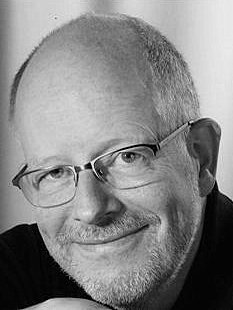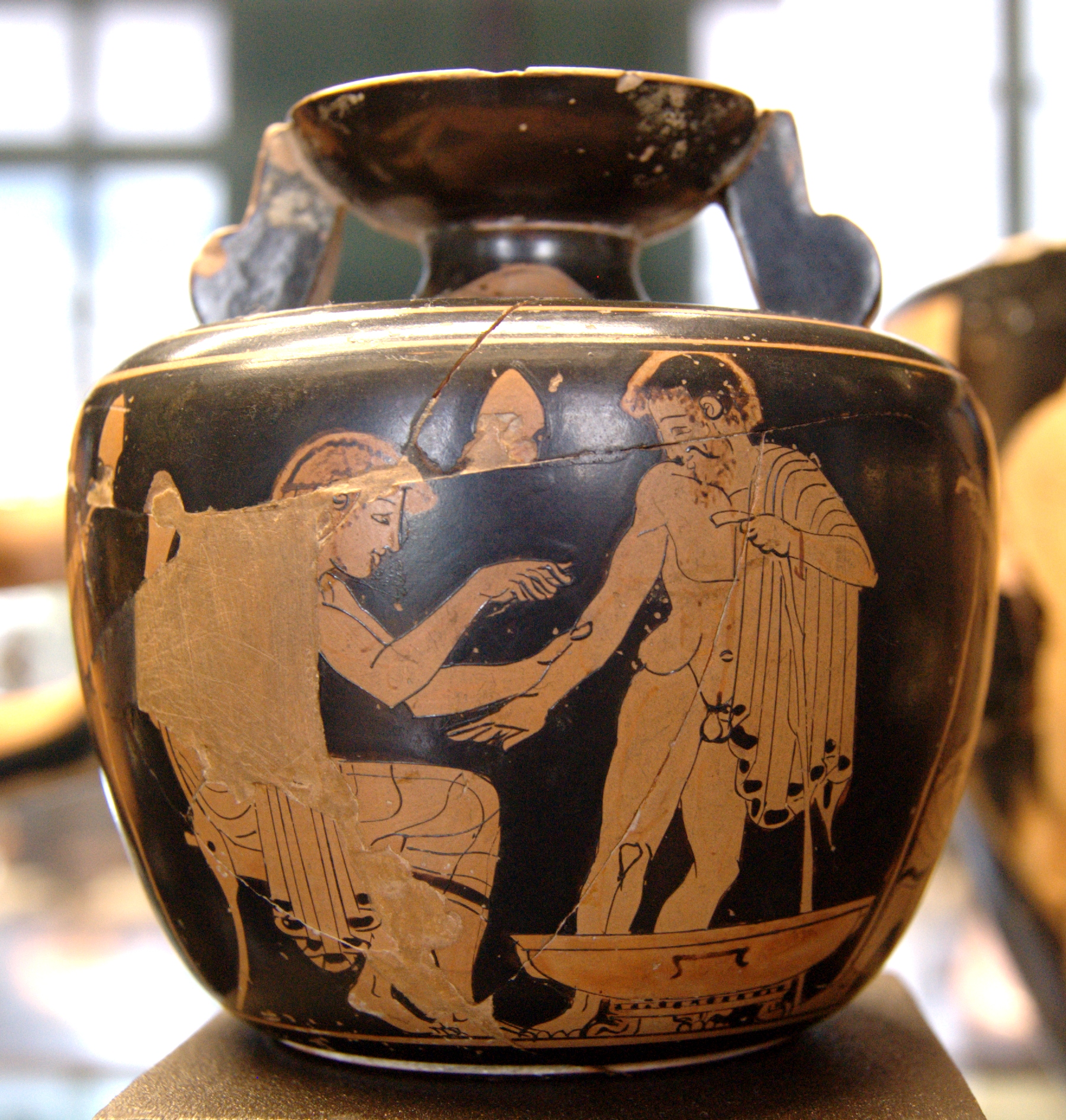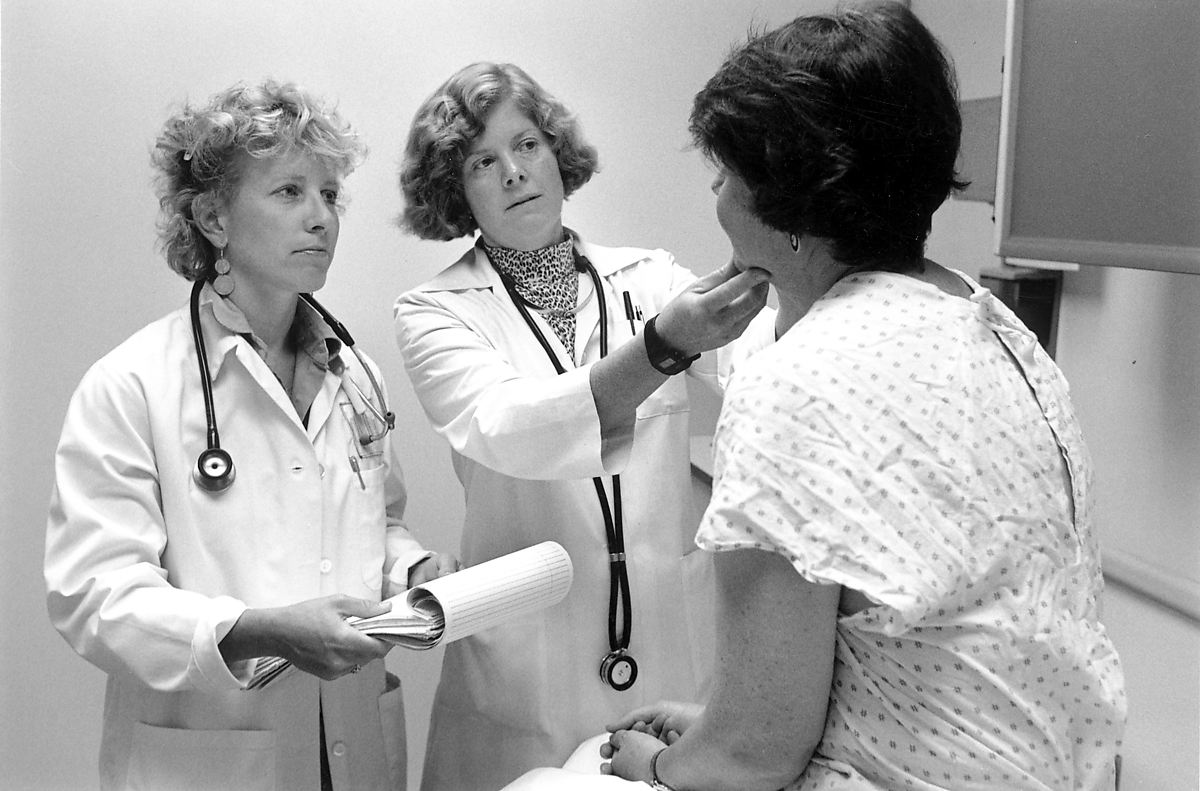|
Günter Ollenschläger
Günter Ollenschläger (born 3 March 1951 in Bonn) is a German physician, medical editor, and á former professor of internal medicine and clinical decision making at the University of Cologne, Faculty of Medicine. Biography Ollenschläger is a certified pharmacist and general internist. He has a pharmaceutical doctorate from the University of Münster (1977), a medical doctorate from the University of Giessen (1982), and the venia legendi from the University of Cologne (1990). Günter Ollenschläger worked as a research pharmacist from 1975 until 1981, and as a university physician from 1983 until 1990, working in the fields of pharmacokinetics, tumor related malnutrition, and metabolism. Ollenschläger joined the German Medical Association as director of Continuing Medical Education from 1990 until 1995. From 1995 until 2014 he was founding head of the German Agency for Quality in Medicine. In that capacity he introduced a variety of projects to develop evidence based hea ... [...More Info...] [...Related Items...] OR: [Wikipedia] [Google] [Baidu] |
German Agency For Quality In Medicine
The German Agency for Quality in Medicine (AEZQ) - in German "Ärztliches Zentrum für Qualität in der Medizin (ÄZQ)", established in 1995 and located in Berlin, co-ordinates healthcare quality programmes with special focus on evidence-based medicine, medical guidelines, patient empowerment, patient safety programs, and quality management. AEZQ is a non-profit organization owned by the German Medical Association and the National Association of Statutory Health Insurance Physicians. __TOC__ Activities AEZQ initiated several quality programs for the German healthcare system: It established the German Program for evidence based medical guidelines in the late 90s. Based upon guideline standards from the Scottish Intercollegiate Guideline Network and referring to experiences from the National Guideline Clearinghouse in the US, the agency founded a German Guideline Clearinghouse aiming at best practice in guideline production. In 1998 AEZQ was co-founder of the German Netw ... [...More Info...] [...Related Items...] OR: [Wikipedia] [Google] [Baidu] |
German Medical Researchers
German(s) may refer to: * Germany (of or related to) ** Germania (historical use) * Germans, citizens of Germany, people of German ancestry, or native speakers of the German language ** For citizens of Germany, see also German nationality law **Germanic peoples (Roman times) * German language **any of the Germanic languages * German cuisine, traditional foods of Germany People * German (given name) * German (surname) * Germán, a Spanish name Places * German (parish), Isle of Man * German, Albania, or Gërmej * German, Bulgaria * German, Iran * German, North Macedonia * German, New York, U.S. * Agios Germanos, Greece Other uses * German (mythology), a South Slavic mythological being * Germans (band), a Canadian rock band * "German" (song), a 2019 song by No Money Enterprise * ''The German'', a 2008 short film * "The Germans", an episode of ''Fawlty Towers'' * ''The German'', a nickname for Congolese rebel André Kisase Ngandu See also * Germanic (other) * ... [...More Info...] [...Related Items...] OR: [Wikipedia] [Google] [Baidu] |
Living People
Related categories * :Year of birth missing (living people) / :Year of birth unknown * :Date of birth missing (living people) / :Date of birth unknown * :Place of birth missing (living people) / :Place of birth unknown * :Year of death missing / :Year of death unknown * :Date of death missing / :Date of death unknown * :Place of death missing / :Place of death unknown * :Missing middle or first names See also * :Dead people * :Template:L, which generates this category or death years, and birth year and sort keys. : {{DEFAULTSORT:Living people 21st-century people People by status ... [...More Info...] [...Related Items...] OR: [Wikipedia] [Google] [Baidu] |
German Journal For Evidence And Quality In Healthcare ZEFQ
German(s) may refer to: * Germany (of or related to) ** Germania (historical use) * Germans, citizens of Germany, people of German ancestry, or native speakers of the German language ** For citizens of Germany, see also German nationality law **Germanic peoples (Roman times) * German language **any of the Germanic languages * German cuisine, traditional foods of Germany People * German (given name) * German (surname) * Germán, a Spanish name Places * German (parish), Isle of Man * German, Albania, or Gërmej * German, Bulgaria * German, Iran * German, North Macedonia * German, New York, U.S. * Agios Germanos, Greece Other uses * German (mythology), a South Slavic mythological being * Germans (band), a Canadian rock band * "German" (song), a 2019 song by No Money Enterprise * ''The German'', a 2008 short film * "The Germans", an episode of ''Fawlty Towers'' * ''The German'', a nickname for Congolese rebel André Kisase Ngandu See also * Germanic (disambiguation ... [...More Info...] [...Related Items...] OR: [Wikipedia] [Google] [Baidu] |
Chief Editor
An editor-in-chief (EIC), also known as lead editor or chief editor, is a publication's editorial leader who has final responsibility for its operations and policies. The highest-ranking editor of a publication may also be titled editor, managing editor, or executive editor, but where these titles are held while someone else is editor-in-chief, the editor-in-chief outranks the others. Description The editor-in-chief heads all departments of the organization and is held accountable for delegating tasks to staff members and managing them. The term is often used at newspapers, magazines, yearbooks, and television news programs. The editor-in-chief is commonly the link between the publisher or proprietor and the editorial staff. The term is also applied to academic journals, where the editor-in-chief gives the ultimate decision whether a submitted manuscript will be published. This decision is made by the editor-in-chief after seeking input from reviewers selected on the basis of re ... [...More Info...] [...Related Items...] OR: [Wikipedia] [Google] [Baidu] |
Guidelines International Network
The Guidelines International Network (GIN) is an international scientific association of organisations and individuals interested and involved in development and application of evidence-based guidelines and health care information. The network supports evidence-based health care and improved health outcomes by reducing inappropriate variation throughout the world. Membership and Organisation The Network's membership consists of 115 organisations working in the field of medical guidelines and other types of healthcare guidance as well as of around 130 individual experts (March 2021). The members represent about 47 countries from all continents. The list of members is available on the GIN website Being constituted as a Scottish Guarantee Company under Company Number SC243691, the Network is recognised as a Scottish Charity under Scottish Charity Number SC034047. History Based upon the work of the international AGREE Collaboration for the quality of clinical practice guidel ... [...More Info...] [...Related Items...] OR: [Wikipedia] [Google] [Baidu] |
German Coalition For Patient Safety
The German Coalition for Patient Safety (APS) – in German "Aktionsbündnis Patientensicherheit (APS)", was established in 2005 and located in Bonn is a German non-profit association of organisations and individuals interested and involved in promotion of patient safety. Activities APS' multidisciplinary working groups develop recommendations for patient safety activities in in- and outpatient healthcare institutions. The recommendations are available as open-access documents and distributed in healthcare institutions for free. APS collaborates with professional and consumer associations, with societies, insurance organizations, self-governmental bodies, and research institutions. The Federal Ministry of Health is one of the organization's sponsors. APS acting together with the German Agency for Quality in Medicine is a Lead Technical Agency of the international High 5 Project The High 5s Project is an international patient safety collaboration launched by the World Health Or ... [...More Info...] [...Related Items...] OR: [Wikipedia] [Google] [Baidu] |
German Network For Evidence Based Medicine
The German Network for Evidence based Medicine (in German: Deutsches Netzwerk Evidenzbasierte Medizin DNEbM) is a scientific nonprofit association of individuals and institutions promoting the quality of patient care and disease prevention by applying the principles of evidence-based healthcare (EbHC) - in special dentistry (EbD), medicine (EbM), nursing (EbN), pharmacy, physiotherapy - in the countries of German language. Being a multiprofessional community, DNEbM provides an interdisciplinary discussion and communication forum for health care providers, patients and consumers, health care scientists, managers and political decision makers on all aspects of EbM&N/EbHC. Membership The network's membership consists of nearly 800 individuals and more than 50 institutions working in the field of evidence-based healthcare or endorsing it, among them the German Cochrane Center, the German Agency for Quality in Medicine (AEZQ/AQuMed), and the IQWIG. Organization DNEbM is a charity ... [...More Info...] [...Related Items...] OR: [Wikipedia] [Google] [Baidu] |
Patient Safety
Patient safety is a discipline that emphasizes safety in health care through the prevention, reduction, reporting and analysis of error and other types of unnecessary harm that often lead to adverse patient events. The frequency and magnitude of avoidable adverse events, often known as patient safety incidents, experienced by patients was not well known until the 1990s, when multiple countries reported significant numbers of patients harmed and killed by medical errors. Recognizing that healthcare errors impact 1 in every 10 patients around the world, the World Health Organization (WHO) calls patient safety an endemic concern. Indeed, patient safety has emerged as a distinct healthcare discipline supported by an immature yet developing scientific framework. There is a significant transdisciplinary body of theoretical and research literature that informs the science of patient safety with mobile health apps being a growing area of research. Prevalence of adverse events Millenn ... [...More Info...] [...Related Items...] OR: [Wikipedia] [Google] [Baidu] |
Shared Decision Making
Shared decision-making in medicine (SDM) is a process in which both the patient and physician contribute to the medical decision-making process and agree on treatment decisions. Health care providers explain treatments and alternatives to patients and help them choose the treatment option that best aligns with their preferences as well as their unique cultural and personal beliefs. In contrast to SDM, the traditional biomedical care system placed physicians in a position of authority with patients playing a passive role in care. Physicians instructed patients about what to do, and patients rarely took part in the treatment decision. History One of the first instances where the term ''shared decision-making'' was employed was in a report on ethics in medicine by Robert Veatch in 1972. It was used again in 1982 in the "President's Commission for the Study of Ethical Problems in Medicine and Biomedical and Behavioral Research." This work built on the increasing interest in p ... [...More Info...] [...Related Items...] OR: [Wikipedia] [Google] [Baidu] |
Patient Information Leaflets
A package insert is a document included in the package of a medication that provides information about that drug and its use. For prescription medications, the insert is technical, providing information for medical professionals about how to prescribe the drug. Package inserts for prescription drugs often include a separate document called a "patient package insert" with information written in plain language intended for the end-user—the person who will take the drug or give the drug to another person, such as a minor. Inserts for over-the-counter medications are also written plainly. In the United States, labelling for the healthcare practitioner is called "Prescribing Information" (PI), and labelling for patients and/or caregivers includes "Medication Guides", "Patient Package Inserts", and "Instructions for Use". In Europe, the technical document is called the "summary of product characteristics" (SmPC), and the document for end-users is called the "patient information leafl ... [...More Info...] [...Related Items...] OR: [Wikipedia] [Google] [Baidu] |



_(8206409270).jpg)